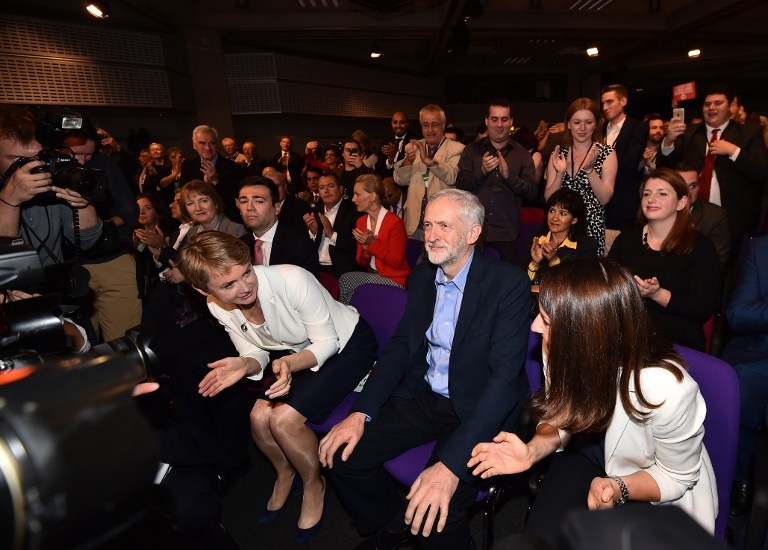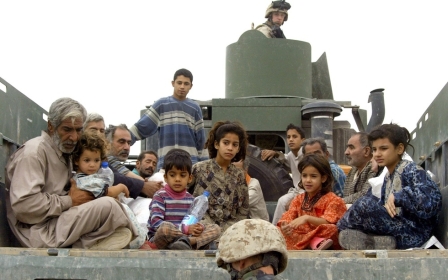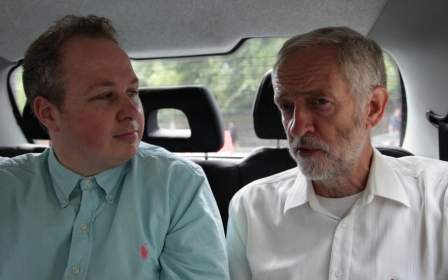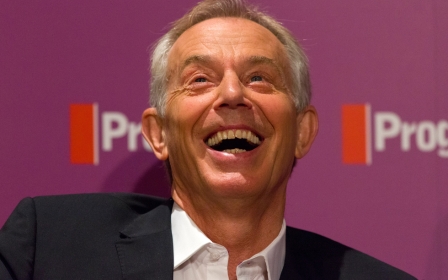Corbyn elected as UK Labour party leader with over 59 percent of vote

Jeremy Corbyn, once seen as an unlikely frontrunner in a race that many see as a precursor to major shifts in UK political dynamics, has been named as the Labour party's new leader.
After winning with over 59 percent of the vote, Corbyn said that his first act would be to participate in the "Refugees Welcome Here" demonstration in London to be held today to show how refugees "must be treated and should be treated in this country".
In recent months, the 66-year-old backbencher and MP for London's Islington North who has served in parliament for 32 years, has electrified the race.
He has drawn support from students who had never voted before to older people disillusioned with Labour since it tacked to the centre under Tony Blair in the 1990s and led Britain into the 2003 Iraq war, which Corbyn opposed and recently said he would apologise to the British and Iraqi people for if elected.
“Let us say we will never again unnecessarily put our troops under fire and our country’s standing in the world at risk. Let us make it clear that Labour will never make the same mistake again, will never flout the United Nations and international law," Corbyn told The Guardian.
For the UK's Middle East policy, Chris Doyle, director of the Council for the Arab-British Understanding (CAABU), told the Middle East Eye that Corbyn's win marks the first time in a long time there will be clear and wide distinctions between the Conservtive government and the main opposition.
"It really is going to open up foreign affairs, as well as many other issues, to be a far more combative part of the British political scene," Doyle said. "It will be fascinating to see who he elects as his shadow foreign secretary, shadow international development and shadow defence ministers. I think it may tell us a great deal about how far he is personally willing to push his own views or whether he willing to go with the consensus."
Corbyn, a patron of the Palestinian Solidarity Campaign, has campaigned on issues ranging from involving Hamas and Hezbollah in Middle East peace talks, to spending more on public services such as schools and hospitals, to scrapping nuclear weapons and renationalising industries like the railways.
He has also said that he is opposed to the current airstrikes against Islamic State targets in Iraq and to extending them to Syria, a position that saw UK Prime Minister David Cameron say last week that he would abandon his plans for an extension into Syria if Corbyn was elected.
“If we just go in bombing, civilians will be killed, and I suspect then there will be a call for ground forces to follow. There is no parliamentary authority for military action as of now – it was rejected in 2013,” Corbyn told Russia Today. “There has to be a political solution to the whole issue."
Fourteen Labour MPs, however, told BBC Newsnight that they would defy Corbyn and vote for the extension.
Corbyn has also been critical of Cameron's recent announcement that the UK killed two British members of IS, who he said were plotting attacks on the UK, with drone strikes.
New MEE newsletter: Jerusalem Dispatch
Sign up to get the latest insights and analysis on Israel-Palestine, alongside Turkey Unpacked and other MEE newsletters
Middle East Eye delivers independent and unrivalled coverage and analysis of the Middle East, North Africa and beyond. To learn more about republishing this content and the associated fees, please fill out this form. More about MEE can be found here.




